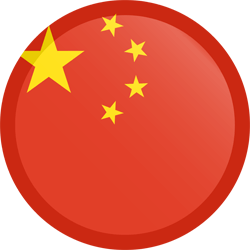Politicians in Bolivia, Colombia, Slovakia, North Macedonia, and Bosnia and Herzegovina, and one other Asian country that declined to be named, say they are receiving texts, calls and urgent requests for meetings that would conflict with their plans to travel to Taipei, in what they describe as efforts to isolate Taiwan.
The Inter-Parliamentary Alliance on China (IPAC) summit officially begins tomorrow. The alliance is a group of hundreds of lawmakers from 35 countries concerned about how democracies approach Beijing.
[…]
"They [Chinese officials] sent a direct message to the president of my party, to stop me from traveling to Taiwan,” Bosnia and Herzegovina lawmaker Sanela Klaric said. “He showed me the message from them. He said: ‘I will advise you not to go, but I cannot stop you, it’s something you have to make a decision.’”
China routinely threatens retaliation against politicians and countries that show support for Taiwan, which has only informal relations with most nations due to Chinese diplomatic pressure.
Klaric said the pressure was unpleasant, but only steeled her determination to go on the trip.
“I really am fighting against countries or societies where the tool to manipulate and control peoples is fear,” she said, adding that it reminded her of threats and intimidation she faced during the Balkan wars in the 1990s. “I really hate the feeling when somebody is frightening you.”
[…]
In a statement yesterday, IPAC said it “deplores and condemns the PRC’s [People’s Republic of China’s] attempt to interfere in its annual summit.”
“Democratically elected lawmakers are free to visit and support causes of their choosing. This is the normal exercise of their rights and responsibilities as elected officials,” it said.
“The PRC’s actions around IPAC’s Summit are yet another example of their brazen efforts to curtail other nations’ democratic privileges and negate Taiwan’s rights to engage in legitimate diplomatic exchanges,” it added.
[…]
China has been peeling off Taiwan’s diplomatic allies, often with promises of development aid, in a long-running competition between the nations that has swung in Beijing’s favor in the past few years.
The Pacific Island nation of Nauru switched recognition to Beijing earlier this year, a move that reduced Taiwan’s number of diplomatic allies to 12.
However, China’s at times heavy-handed approach has also triggered backlash.
In 2021, Beijing downgraded relations and blocked imports from Lithuania, an EU and NATO member, after the Baltic nation broke with diplomatic custom by agreeing that a Taiwanese representative office in its capital of Vilnius would bear the name Taiwan instead of Taipei, which some other countries use to avoid offending Beijing.
The following year, the EU adopted a resolution criticizing Beijing’s behavior toward Taiwan and took action against China at the WTO over the import restrictions.
[…]
However, […] the coercive tactics have only made participants more determined to participate.
Miriam Lexmann, a Slovakian member of the European Parliament whose party head was approached by Chinese diplomats, said the pressure underscored her reason for coming to Taiwan.
We want to “exchange information, ways how to deal with those challenges and threats which China represents to the democratic part of the world, and of course, to support Taiwan,” she said.
[Edit title for clarity.]


